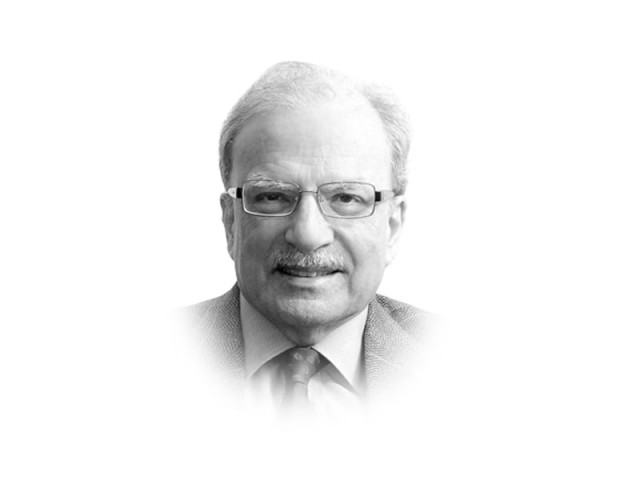A new development paradigm for the tribal belt
Focus of the people in tribal areas should be on developing skills which will help them progress in life

The writer is a former caretaker finance minister and served as vice-president at the World Bank
For human resource — and this includes both men and women — to contribute to sustained development, there will have to be emphasis on education and skill-formation. There needs to be focus on primary education and literacy. Both boys and girls should be targeted. This will not be easily achieved. Recent history, which includes the attempted assassination of Malala Yousufzai, shows how some elements in the Pakhtun society are dead set against education for girls. Education is equated with Westernisation and the West is seen as being hostile to Islam. The only way to break out of this mindset is to educate the heads of households and convert them to the point of view that education is the most important route to economic success.
Going beyond basic education and literacy, the human resource effort in the tribal belt should focus on developing three types of skills: those needed to restructure the tribal economy as well as improve its economic productivity; those that are of value outside the area and contribute to a greater flow of people to the world outside; and those that will help women improve their earning capacity and social status.
Not being able to rely on agriculture and livestock, the working population will need to be trained to work in the areas that can be supported by the local economy. Here it will help to build on some traditions — gun-making for instance. When I chaired the Pakistan Government Task Force on Private Sector Development a few years ago, one of the members of my group was an entrepreneur from the settled areas of Khyber-Pakhtunkhwa who had, using the skills available locally, set up a medium-sized manufacturing enterprise producing hunting weapons for exports as well as for sale in the domestic market. From all accounts, he had made a success of this venture. But that is not the only skill that can be developed. For decades, small-scale mining operations have been carried out in the region extracting precious stones and using them for making jewellery and ornaments.
There are a significant number of people working in the Middle East from the tribal belt. Driving cars, taxis and trucks, providing security personnel for homes and offices are the most popular occupations for people from this area. Even for these people, improving the levels of skills — turning drivers into mechanics, for instance — will increase their earning capacity. As for women, the training should focus on producing small entrepreneurs, teachers and health workers. Once again development of traditional skills will help improve incomes and social status. A Swat-based enterprise that employs women by handing out work that can be done at home has created markets in the up-scale shopping areas of Lahore and Islamabad for traditional garments that have begun to be worn by high-income people. This kind of effort can be replicated.
Published in The Express Tribune, March 23rd, 2015.
Like Opinion & Editorial on Facebook, follow @ETOpEd on Twitter to receive all updates on all our daily pieces.















COMMENTS
Comments are moderated and generally will be posted if they are on-topic and not abusive.
For more information, please see our Comments FAQ